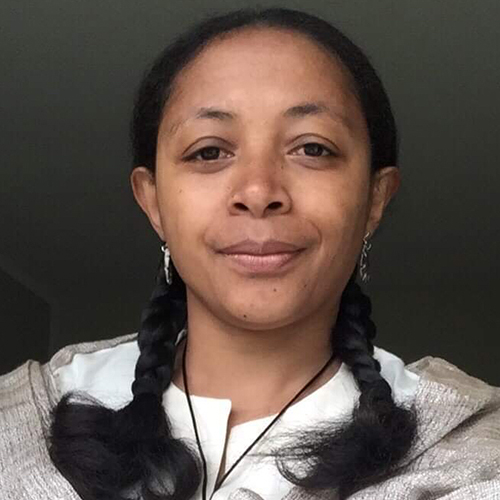
Hoby Razafindrakoto
Country (Nationality)
Madagascar
Grantee Title
Project: Earthquake Monitoring and hazard evaluation In Madagascar (EARTHMOVING)
Grantee Description
Research area:
Earth Science
Host Organisation & country:
Institut et Observatoire de Géophysique d’Antananarivo (IOGA), Madagascar
Summary
Earthquakes continue to be contributing factors to Africa’s natural disasters causing immense economic and human losses related mostly to the destruction off infrastructure. Dr Razafindrakoto’s project aims to enhance scientific capacity in seismological research and engineering seismology in Madagascar through improved earthquake monitoring and state-of-the-art seismic hazard analysis.
Grantee Description
Dr Hoby Razafindrakoto is currently a research scientist at the German Research Centre for Geosciences (GFZ), focusing on bridging the gap between computational and engineering seismology. She has been working in various cultural environments in four countries (Madagascar, Saudi-Arabia, New Zealand, and Germany) and has authored 15 peer-reviewed publications addressing problems in seismology, seismic hazard, and seismic risk. She obtained her Ph.D. in Earth Science from the King Abdullah University of Science and Technology (KAUST) in 2015. Her doctoral research was directed toward quantifying the uncertainty in finite-source inversion using Bayesian inference.
Dr Razafindrakoto’s long-term aspiration is to build a team that has technical and scientific prowess reaching the international level standards and having the capacity to compete in public calls, contribute to scientific activities in international projects and monitor mining areas in regards to seismology.
Project: Earthquake Monitoring and hazard evaluation In Madagascar (EARTHMOVING)
The EARTHMOVING project aims to empower research in earthquake seismology and seismic engineering in Madagascar, as well as to build a foundation for advanced physics-based and rapid post-earthquake assessment from earthquakes in Madagascar and eventually in Africa. Activities within this project are framed around three key work packages: Technology Platform, Sciences & Research, and Capacity Building. In terms of technology platform, the goal is to enhance earthquake monitoring by improving state-of-the-art algorithms to detect and locate events and discriminate between natural and non-natural earthquakes (e.g., quarry blast). In the Sciences & Research topic, the aim is to capitalize on the monitoring developments and the existing data from permanent and temporary seismic stations in Madagascar to achieve a comprehensive seismic hazard analysis accounting for both natural and induced seismicity; a first step toward managing the risks effectively. Finally, for capacity building, the purpose is to strengthen professional development and ensure a long-term impact on scientific capacity, allowing scientists from Madagascar to be fully involved and contribute to international scientific projects aiming to understand the solid earth and associated risks.
